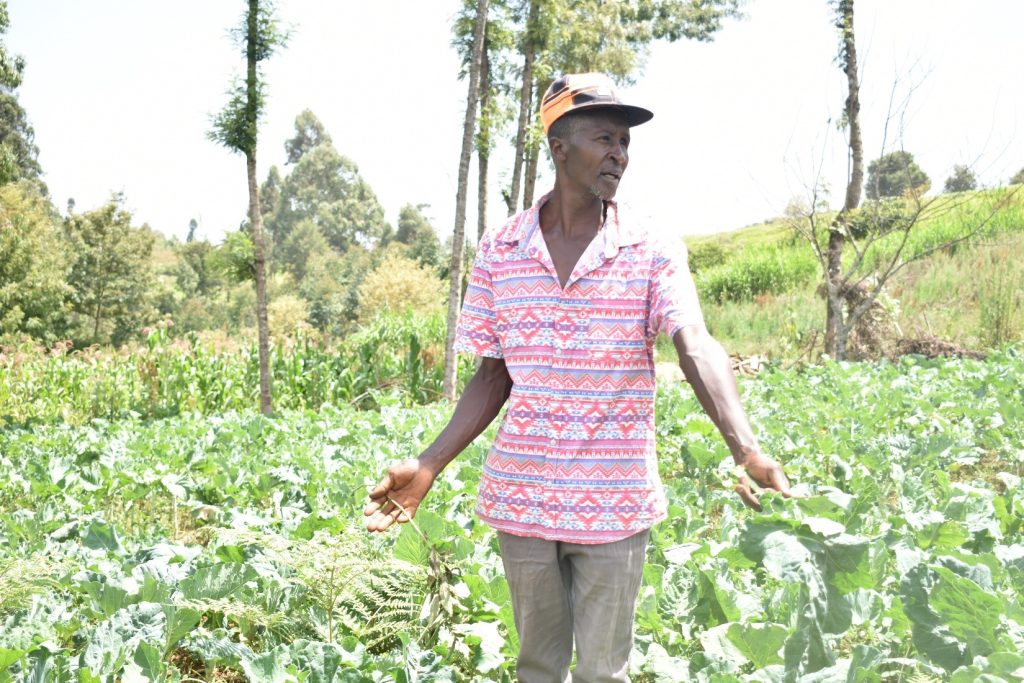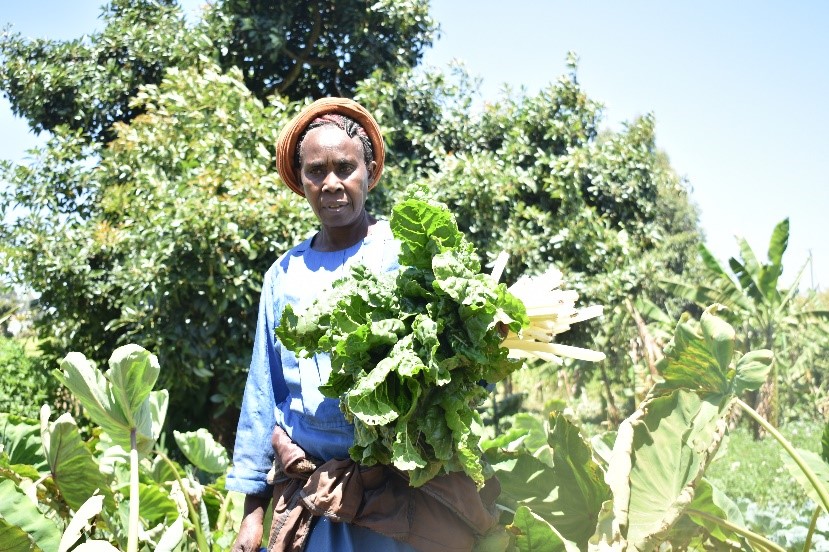AGROECOLOGICAL FARM INPUTS

David Wathika is a happy farmer since he embarked on organic farming, the farmer from Kihenjo Ward, Kiambu County says his cost of farm inputs has reduced by 70 percent. He also notes that the fertility of his farm and general soil health has highly increased. This he attributes to the use of bio pesticides and organic fertilizer. “I don’t buy any farm inputs from the agrovets. Everything I use in my farm is made using locally available materials,” he says.
For the past five years, David has been farming using agroecological farming practices which include conservation tillage, organic manure, nitrogen fixing plants, biological pest control, rainwater harvesting and crop diversification. This he says has cushioned him against the use of harmful chemicals and fertilizers as well as helped his farm to heal from the previous damage caused by use of conventional farm inputs.
In his half acre farm, David has planted a variety of crops among them kales, spinach, maize, herbs and fruit trees which are all organically produced. Through this, he mentions that he is able to ensure he has produce to sell all year round. This has improved his livelihood and that of his family remarkably. Through farming, David who is a fulltime farmer has managed to educate his children, feed his family with heathy balanced meals and improve his living standards which he attributes to the savings he makes by making his own bio pesticides and organic fertilizer.
Mary Muthoni, a farmer from Kamahai Ward, Lari Sub-county, Kiambu shares similar sentiments on the reduction of farm inputs cost resulting from the use of biofertilizers and biopesticides. She says she has been practicing agroecological farming for the past five years and has experienced a huge difference in the cost of production. “For the past five years, I have been gradually switching to agroecological farming and the difference in the cost of farm inputs has been remarkable. I am able to make eighty percent (80%) savings as the only cost incurred is labour cost. I source all materials for biofertilizer and biopesticides locally,” Mary says.

She says before she switched to organic farming, the cost of pesticides and fertilizers was very high which resulted to perennial losses. “All my profit was ploughed back to purchase of fertilizers and pesticides. It was very frustrating. At some point I thought of quitting farming but unfortunately, I didn’t have any other alternative to venture into. I was devastated,” she laments. Mary further notes that her fortunes changed when a friend introduced her to ICE. “I started accompanying my friend to the ICE trainings and since then I have never looked back. I drew an exit strategy from conventional farming by converting my farm into completely organic a portion at a time. This helped me to learn and improve on organic farming. My farm practice is now purely organic,” she says excitedly.
She makes biopesticides using different plants, chilli and rabbit urine. All the plant materials are soaked for two weeks after which they are sieved and rabbit urine added to them after which they are ready for use. This concoction Mary says is useful in preventing cold shock caused by frost, extreme effects from the sun and pests. Once the plants are sprayed, Mary says they are given an allowance of one week before harvesting.
True to her words, despite the scotching sun and extreme cold weather at night, her crops look very healthy. She has ventured into organic vegetable farming where she has planted kales, spinach, cabbages, carrots, fruit trees, bananas, arrowroots, sweet potatoes, sugarcane and irish potatoes. Her farm is an ideal agroecological farm. About market for her produce, she says she has not experienced challenges in marketing since she has already built a market base and has farmers who specifically consume her products as they are organically produced. However, Mary notes that there is need to undertake consumer sensitization campaigns to educate them on the advantages of consuming organically grown foods.
A parting shot from Mary to other farmers, “I wish to advise them to embrace organic farming because it is very beneficial especially in terms of reduced cost of inputs as well as the health benefits related to consumption of organic foods.”

